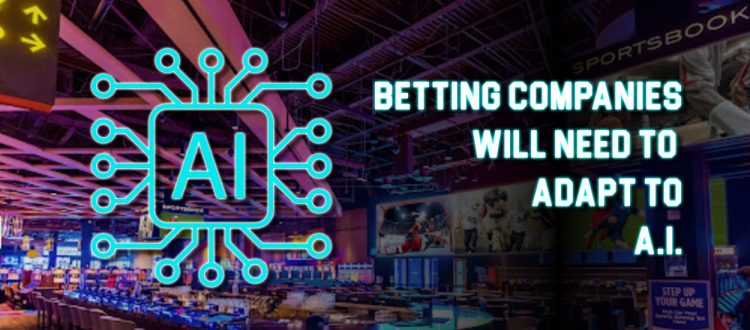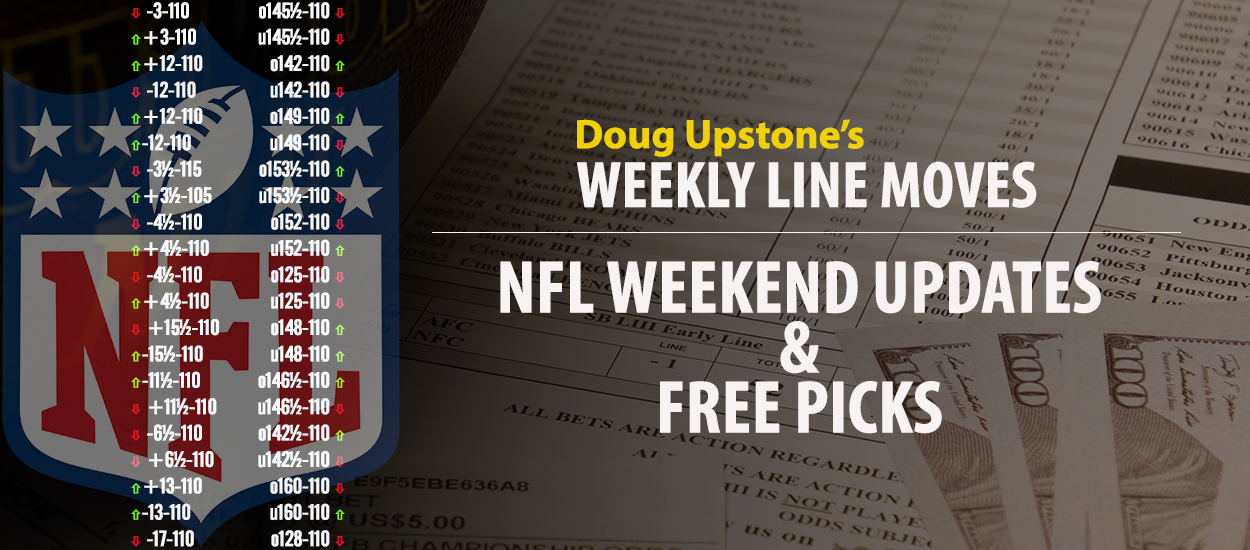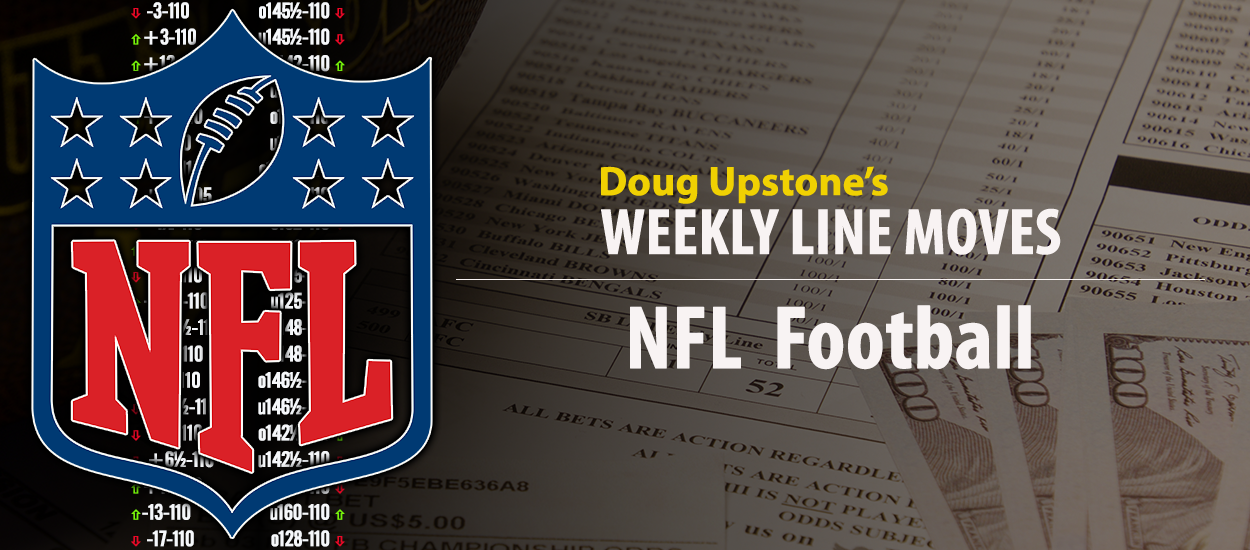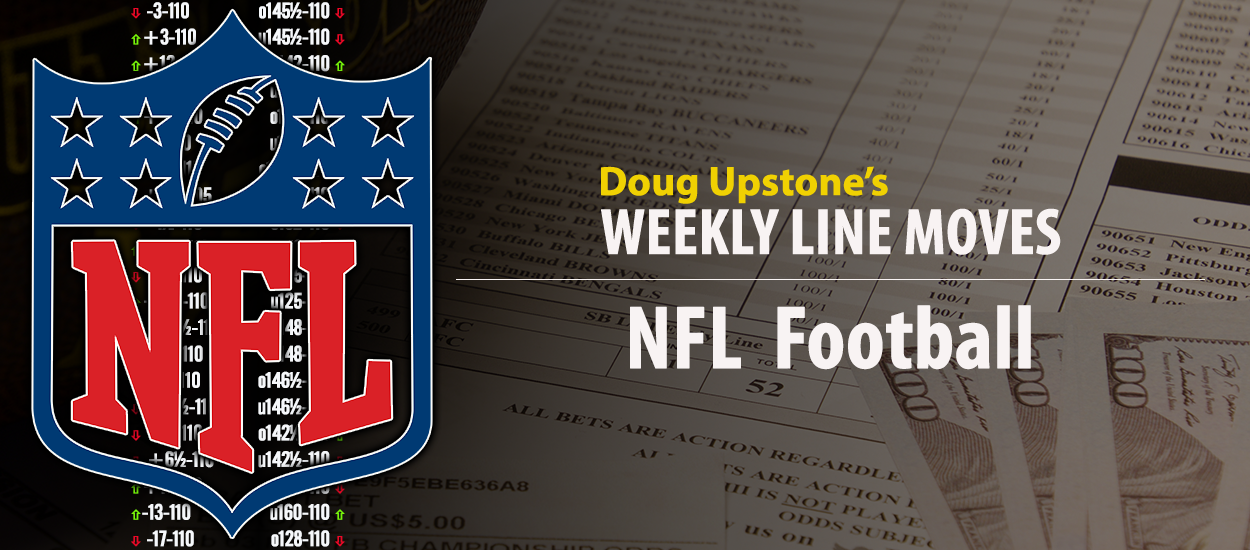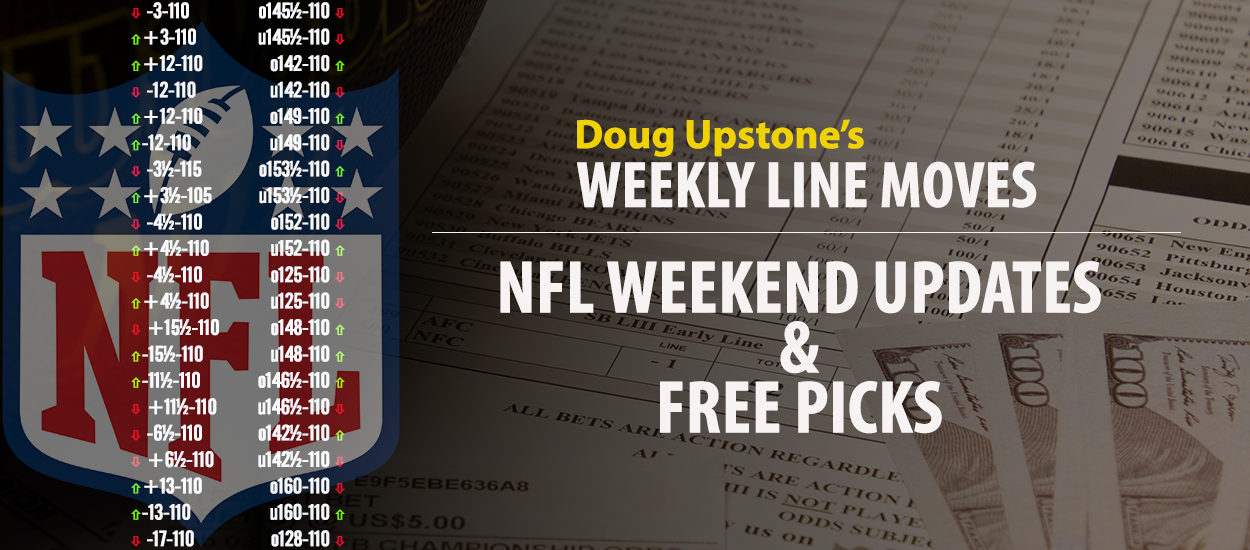Many experts feel gambling companies won’t exist without adapting AI
One of the topics that was mentioned many times in recent conferences I’ve attended, as well as in articles published in gambling industry periodicals is about Artificial Intelligence (AI), and why it is essential to industry success. While I understand the basic tenets of Generative AI like ChatGPT to help answer queries to basic prompts or requests, I am still at a loss of how and why it is felt that gambling companies can only survive if they adopt AI and use it to create analytics that will help them do everything from creating lines to spotting problem gambling and cheating. Since this is clearly not my area of expertise, I reached out to Joseph Martin, the founder and CEO of Kinectify as well as a colleague who works in the AI industry in Toronto to help me understand how and why AI is so important.
AI for gambling
Jack, who works for a major analytics company in Toronto and asked that his company’s name and his last name not be used for this article, since he never asked higher ups for permission, said that while he is not much of a gambler himself, he would be happy to help explain the benefits of AI for gambling.
“AI is imperative to taking out a lot of guess work, which has been a bane on gambling companies forever. Like any system you still need to have the proper programming and staff in place, but good analytics and AI can help with marketing and promotions, creating a more appealing betting experience, analyzing historical data and trends to predict future results, and help highlight potential issues when things are off. Let me explain.
While I’m not much of a gambler myself, I have colleagues who do work in the gambling industry and most of their job is focused on helping casinos target their marketing and promotions to get the best outcome. Casinos have long realized that handing out the same bonuses and incentives is a waste of time because everyone is different.  If a customer is spending all their money playing slots and has never bet a table game or made a sports bet in their life, then it’s pointless to give them a free bet on sports or blackjack. The offer will be meaningless to them and will generate no return. Similarly, for professional sports bettors who are wagering $10,000 a game in the NFL, it’s almost an insult to give them a free $5 parlay bet and certainly more than useless to provide them $5 in free chips to use on roulette. AI helps look at player trends and identify the promotions that will be of most interest to them which sportsbooks hope will convince them to stay loyal to the company. Moreover, there is a high cost to a player acquisition so the last thing casinos want to do is spend $1,000 trying to acquire a little old grandmother who is living off social security checks and they may be lucky to win $20 off of in a month.
If a customer is spending all their money playing slots and has never bet a table game or made a sports bet in their life, then it’s pointless to give them a free bet on sports or blackjack. The offer will be meaningless to them and will generate no return. Similarly, for professional sports bettors who are wagering $10,000 a game in the NFL, it’s almost an insult to give them a free $5 parlay bet and certainly more than useless to provide them $5 in free chips to use on roulette. AI helps look at player trends and identify the promotions that will be of most interest to them which sportsbooks hope will convince them to stay loyal to the company. Moreover, there is a high cost to a player acquisition so the last thing casinos want to do is spend $1,000 trying to acquire a little old grandmother who is living off social security checks and they may be lucky to win $20 off of in a month.
AI is great for that purpose, namely looking at publicly available information and when someone registers to become a client, they can decide how much effort and money to put in to getting that person as a client. One of my colleagues told me that several of the sportsbooks closing these days are European-based books that never realized how expensive it is to get a customer in North America and that Europeans are far more brand loyal. So, after pouring millions into obtaining customers, they just take the bonus and look elsewhere to bet. No business can survive with that model.
AI is also useful in spotting problem gambling and cheating. One thing I tell all my friends who ask what AI does that they can’t do themselves is the ability to spot what’s not evident to the naked eye. AI can look at mounds of data and spot trends that may look quite normal on the surface, but when viewed in more detail are abnormal from the trend. For example, if someone typically bets $40 a day on slots and stops betting once they lose that amount but in the last few months started betting $50, then $60 etc., AI will note that this person seems to be chasing losses and is starting to show signs of becoming a problem gambler, whereas before AI, those hired to spot problem gambling would have likely ignored it since the trend is subtle. And if the goal of the casino for using AI is to get spot potential problem gambling, then it would be a massive benefit to the casino to stop them before they do become real problem gamblers and lose money they don’t have and possibly even sue the casino for allowing them to get to that point.
As for cheating, AI will note suspicious behavior and fraud that may not be evident to the naked eye. And for sports, all one has to do is look at that Toronto Raptor player (Javontay Porter) who was identified to have been throwing games to help win proposition bets. I have no doubt that AI models were run at the casinos which noted the suspicious activities and convinced the league to examine whether something was afoul. AI can also help spot collusion if players in multiple locations are teaming up in something like poker. I know many people will say that casinos were already doing all that and they are right, but AI is just better at spotting it quicker and noting subtleties that may be missed.
 I really can’t speak for how AI can help sportsbooks create better lines, but one thing I can tell you is that AI is great at looking at history and predicting the future. As I understand it for any in-game betting traditional sports betting companies looked at the score and used intuition to come up with a line they thought was plausible. AI can go one step beyond that. They can look at how teams fair in later quarters or innings to determine the likelihood a team can come back and it can also factor in things like when a pitcher in a baseball game will start to tire and how the other team’s players will fair against the next likely replacement etc. It can also factor in things like weather and wind conditions and come up with more plausible odds. And good bettors are already doing this so it lets the sportsbooks know factors the professional gamblers know and more. This would undoubtedly not only help sportsbooks with lines, but also allow them to offer more. And if the AI is really good, it could target the offers and lines to different customers based on what specifically they prefer to bet on.
I really can’t speak for how AI can help sportsbooks create better lines, but one thing I can tell you is that AI is great at looking at history and predicting the future. As I understand it for any in-game betting traditional sports betting companies looked at the score and used intuition to come up with a line they thought was plausible. AI can go one step beyond that. They can look at how teams fair in later quarters or innings to determine the likelihood a team can come back and it can also factor in things like when a pitcher in a baseball game will start to tire and how the other team’s players will fair against the next likely replacement etc. It can also factor in things like weather and wind conditions and come up with more plausible odds. And good bettors are already doing this so it lets the sportsbooks know factors the professional gamblers know and more. This would undoubtedly not only help sportsbooks with lines, but also allow them to offer more. And if the AI is really good, it could target the offers and lines to different customers based on what specifically they prefer to bet on.
Joseph Martin made it clear that AI is important, but modern technology is just as important and he explained how Kinectify could help companies who want to improve their technology and AI capabilities.
“Modern technology is essential for any gaming operator to be successful. This goes beyond AI but is certainly inclusive of it. Being able to understand and work with your own data is essential for modern companies to succeed. This is true for internal data to optimize your operations as much as external data to understand your customers and the market. We’ve seen in the sports betting space that traditional casinos that have not modernized their technology stack have not been able to effectively compete in the online space. This is due to speed-to-market modern technology provides as well as the range of other capabilities it affords, including the ability to deploy updates quickly, scalability, and centralized data stores for analytical use. Modern software, including AI, relies on scalable infrastructure only found in large data centers commonly referred to as the cloud. The compute resources needed for AI and analytics is substantial and out of reach for gaming companies operating on-premises infrastructure.
AI is transformative technology that is being integrated into nearly every software application we use. The leading technology companies in the world are spending billions on rebuilding their software and services to incorporate this technology underscoring its significance. Companies that prioritize integrating this technology alongside the range of other modern technology available in the cloud will be competitive in the coming years. Immediate wins for operators include automating large portions of customer support, automating virtually all data entry tasks, producing analytical dashboards and reports, and incorporating effective data science to deeply understand their customer base in near real-time.
Kinectify is on the forefront of leveraging modern technology in the risk management space. We use Microsoft’s new NoSQL database, CosmosDB, to consume and work with big data. We can consume over 33,000 data points per second from an individual client and that number continues to grow. We risk score all players continuously against a range of risk factors and sophisticated computations, monitor billions of transactions for patterns of suspicious activity, and automate workflows including using language models to populate government forms and narratives. The results have been impressive. Our clients are seeing false-positive rates on suspicious activity alerts fall from the industry average of 90% down to under 20%, while identifying over 43% more suspicious activity than they did before they used our software. This means their overall workload is falling substantially as the false alerts are being wiped away, yet they are identifying substantially more risk, greatly improving their control environment. Efficiency is another area where they are benefiting. Our clients are seeing more than a 90% decrease in the amount of time it takes to investigate suspicious activity incidents and nearly 100% decrease in the amount of time it takes to populate required government reporting of suspicious activity. This is why our product is so hot in the market today and being adopted by so many across our industry.”
AI at land-based casinos
Aside from online gambling, AI can also be very helpful in the land-based space. Kiran Brahmandam, the founder and CEO of Gaming Analytics offered several case studies on how AI helps traditional casinos make decisions to maximize profits that would not have been apparent without the artificial intelligence capabilities. One study focused on a Las Vegas casino to illustrate how they were able to segregate the machines based on risk. AI noted that gamblers play high risk machines looking for the big payout while tourists play lower risk machines hoping to keep a small deposit going for a while. They figured out where each tends to go within the casino and then positioned the machines accordingly to get the maximum value from those going to the casinos.
A more compelling case study was related to Gulfstream Park casino, which used AI to identify player betting trends to improve revenue. The case study is actually posted on the Gaming Analytics website.
The study which featured Danny Onate, the Database Analyst Manager at Gulfstream Park, showed how casinos (both land-based and online) tend to look at overall performance to analyze a player’s value. When a player has a big win and consequently raises their betting, the casino would offer higher free spin amounts to have them continue playing. However, the customer would eventually go back to normal betting leading to free spins or bonus offers declining and customers leaving the casino as a result. Gulfstream developed an AI tool in collaboration with Gaming Analytics that allowed them to eliminate any days with particularly high wins and also time-out periods for players where the customer was betting less and instead identify what their true wagering patterns are and provide rewards accordingly.
Martin and others note that unfortunately many old school casinos are not willing to use AI or modernize in any way simply because it’s new, plus the cost to upgrade is prohibitive. But the unwillingness for this modernization was part of the reason MGM and Caesars suffered vulnerabilities that allowed hackers to get into their servers which devastated MGM for months.
I asked Joseph Martin how much it would cost if any company that was still using old technology wanted to modernize:
“I believe Sportsbooks that are running everything on-site would save a lot of money modernizing. They would not need to do the following:
- Buy and maintain servers, which can run as high as $500k each
- Rent or buy physical space, electricity, etc. to run and manage their infrastructure
- Staff systems administrators and similar technology staff to manage and run infrastructure
- Physically install new software programs and manually deploy updates to their own infrastructure
“The advantages include:
- Elimination of much of the above overhead making data processing cost much less
- Pay for use, so they can scale up and down services when not in use saving lots of money (for example, scaling up for a major sports event then scaling back down after is much cheaper than buying equipment needed to handle for these influxes then being stuck with the equipment)
- Automation – using software major data centers provide that allows you to interact remotely with the infrastructure and automate software deployments
- Speed-to-market: stand-up new jurisdictions quickly due to less overhead and no equipment or physical space needed to house equipment and associated staff
- Increased data security
Martin noted that not modernizing could be disastrous.
“Consider Nokia. The company Nokia had a great little phone that was a market leader. Then they missed the digital transformation Blackberry and Palm brought to the phone market and after that they missed the smart phone transformation Apple ushered in and Nokia was dead in the water. By the time Nokia tried to catch up, it was too little, too late. While Nokia phones are reliable, how many people do you know that still use a Nokia phone today? The capabilities are simply lacking to be attractive in today’s market. Likewise, online gaming companies who missed the cloud transformation of the 2010s are not well positioned to leverage modern technology today that is rapidly evolving with the acceleration of AI and data analytics technologies. These companies using outdated technology are quickly becoming slow moving dinosaurs that need to embrace modern technologies or they will find in the coming years they are no longer competitive.”
So, it’s clear that success in the gaming space, particularly online sports betting, is going to require the adaptation of AI . . . if the company wants long term success. It can be costly at first, but not modernizing and adapting new ideas like AI could be even more costly. As the old Fram Oil Filter commercial said “you can pay me now or pay me (a lot more) later.”
Read articles on sports betting and the North American gambling industry from Hartley Henderson here at GamblersWORLD.

